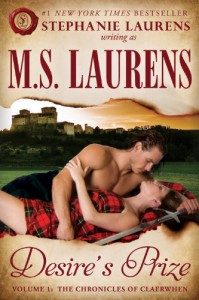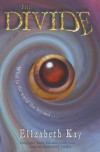Khanh the Killjoy
Fuck Medieval romances

In the midst of a bad streak of books, I often turn back to a good old comfort read. For me, that is the time-tested genre of Historical Romance. But here is where I made a crucial error---I should have stuck to the Regency era instead of going back to Medieval.
It's kind of hard to fuck up a good old-fashioned love story...but apparently, it's not impossible. Not when the story is set in the Medieval Era. Regency romances are familiar, soothing, like a warm cup of apple cider on a crisp fall day. Medieval romance are as comforting as choking down an ice-cold kale, spinach, and lemon colon cleanse on an frigid winter morning.
This book also deals with sexual abuse in a way that completely pisses me off. We have always known that Eloise has been sexually tortured by her first husband. Let's get one thing straight: the way to earn a woman's trust after sexual trauma is not to screw her silly. Alaun thinks that's the way things should go, he knows of Eloise's pain, her previous experience with abuse, her shame, her horror. Yet, he seems to think that the way to earn Eloise's trust and ease her mental scars is to fuck it out of her. And Eloise lets him. THAT'S NOT HOW IT WORKS. Eloise is not "half a woman" because she has been abused. Fuck you, Alaun.
To be fair, this book is considerably less aggravating than other Medieval romances I've read. At least there's no justification of attempted rape on the part of the love interest. At least the prisonerheroine doesn't fall in love with a brutish raping pillaging motherfucker of a captor husband, but it still includes far too many Medieval tropes than I would like. In her author's note, Ms. Laurens said that she chose the Medieval era for this book's setting because the brute reality of the time means that the characters must be strong to survive. I will concede that the characters in this book are strong, but not in a good way; they are headstrong, they are contrary, their actions and thoughts are contrary, and I found both main characters to be altogether grating on the nerves.
Needless to say, when one of the best thing I can say about this book is "At least the main character doesn't get raped by her true love," it's not a terribly good sign.
We first meet Eloise when she is little more than a child, on the eve of her wedding to a brute, de Cannar. Nine years later, she is blissfully widowed, and living on her father's estate, ruling the roost as its intelligent, capable chatelaine. After her mercifully short marriage, Eloise is now satisfied with her life. She has her own money, her own estate, she is happy living with her father's household, running things like clockwork. She is beautiful, smart, everyone wants to marry her, but Eloise has vowed to never marry again (and with good reason).
Naturally, the men in her life don't give a fuck about what she wants. Lord Henry is her creeptastic father. He looks at his busy, competent daughter who is running his household like a dream and decides that's she's unhappy. Eloise is an awesome daughter. He loves her so very much.
She was a daughter an old warrior could be proud of, with her matchless beauty and indomitable pride.
So of course, the only reasonable decision to make is to give her away because Lord Henry wants the prestige of the famous Alaun de Montisfrey brings to his festive tournament. It's for bragging rights.
Henry couldn’t hide his exasperation. “Name your prize,” he growled, “and if it’s within my power, it’ll be yours for the taking.”
Slowly, [Alaun] raised his goblet. Sipped. “Your daughter.”
...it seemed as if [Lord Henry's late wife] stood at his shoulder, urging him on. “Ah, yes. My daughter, I believe you said? Should you compete in this tournament and be declared its victor, when you leave this castle, my daughter, Eloise, will be in your care.”
Father knows best? Fuck you, Lord Henry. I called Lord Henry creeptastic, and I meant it. He watches his daughter suck face in an alley with Alaun and just chuckles because his plans are coming to fruition. He overhears his daughter moaning with pleasure as Alaun fucks her from behind and continues eating his dinner. I have a newfound appreciation for my own father after this book.
I see Eloise as a mostly-smart woman turned generic by her acquiescence of Alaun's brand of love, which is not so much love as a brand, much like one would put on a horse or a cow, to demonstrate ownership. I pity Eloise, despite her occasional stupidity at times, because it is a difficult thing to be a woman at this time. Despite her independence, despite her widowhood, she is still more or less owned by her father, and then, owned by Alaun. Eloise is not so much a woman as she is chattel, the property of the men in her life. She is a moron sometimes. She goes off skinny dipping in a frigid lake in the middle of a freezing night and ends up getting seduced. She thinks, oh, Alaun is soooooooooo different because instead of wanting to marry her, he just wants her body!
...he was not, nor had he ever been, interested in marrying her. It was her body he sought—he had made that abundantly clear from the first; he was the first man to approach her with no interest in her hand and the fortune that went with it. It was a novel situation—she wasn’t sure what she thought of it.
I'll tell you what you should think, Eloise, you should think he's a douchewad.
Alaun is a typical Medieval leading man, which is to say, he is a fucking douche. Yet, he is physical perfection, so naturally it makes it perfectly good to go weak in the knees for him. Eloise, please, you are so much better than that. Alaun is built like a 300-muscle-packed-pound linebacker with the grace of a ballet dancer, with the agility of a man half his size. He defeats all his opponents, wins every impossible test in order to win Eloise. He is a physical anomaly. He is Gary Stu at its finest.
Alaun does not talk like a normal human being. He growls. He snarls. He roars. He scowls. He needs to take a course on anger management.
Alaun is completely astounded by the fact that Eloise (the "damned witch," the "virago," the "fire-witch") is not completely soaking wet in her panties for him despite the fact that he goes out of his way to win the tournament so she can become, more or less, his property.
After their visual duel, let alone the little matter of his prize, she should have been quivering with reaction, uncertain, vulnerable to a subtle, more gentle assault. He’d expected to find a woman primed for seduction.
What he’d found was a woman only one step removed from the virago of the woods. Instead of melting into his arms, she’d tried to summarily dismiss him.
He wasn’t used to being dismissed, summarily or otherwise.
Alaun is not a gentle lover, he does not want an equal partner in Eloise. He wants to conquer her. He wants to "break her". His declaration of love is ever so romantic.
“You are not a burden!”
Startled by the force behind his words, she glanced up to see him cast a mute appeal heavenward. He looked down, impaling her with golden spears.
“You are mine! Tis time you understood that.”
So fucking romantic.
The Sex: If you wanted a bodice-ripper, you've got it. Rest assured, Eloise and Alaun rut like a couple of horses in heat in this book.
“Nay, lord.” She turned to come up on her knees before him. “Come—plant your seed deeply, as do your stallions.” She glanced over her shoulder; her eyes gleamed. “Long, strong—and very slow.”
Despite her widowhood, despite her sexual abuse, Eloise is still a virgin. That pisses me off. Is there such a need for virginity in a romance novel that you would actually contrive to have an abused WIDOW who is a virgin as well? And to have her come to orgasm when she loses her virginity. Despite the fact that Alaun is hung like a particularly well-endowed horse? Oh, and of course it's ok to have sex twice on the night you lose your virginity. OF COURSE IT DOESN'T HURT.
“Will it hurt?”
“Nay.”
Fuck you, Alaun. You lying liar.
Reach for a Regency romance instead. This book was so much more trouble than it was worth.
 5
5
 1
1





